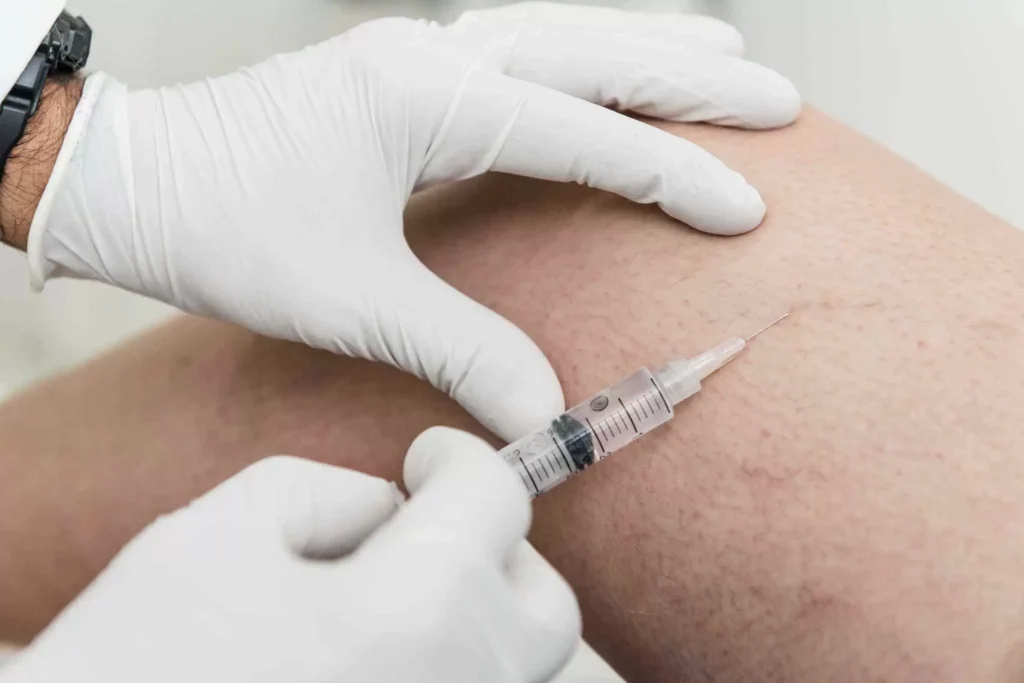Introduction
Non-surgical vein treatments have revolutionized the management of venous disorders, providing effective solutions without the need for invasive surgery. This article explores various non-surgical vein treatments, their benefits, and how they can help improve vein health.
Understanding Non-Surgical Vein Treatments
What Are Non-Surgical Vein Treatments?
Non-surgical vein treatments are minimally invasive procedures designed to treat venous disorders such as varicose veins and spider veins without the need for traditional surgery. These treatments are typically performed in a clinic and involve minimal downtime.
Types of Non-Surgical Vein Treatments
Sclerotherapy
Sclerotherapy is one of the most common non-surgical treatments for varicose and spider veins. During the procedure, a sclerosant solution is injected into the affected veins, causing them to collapse and eventually fade away.
- Benefits: Sclerotherapy is effective for small to medium-sized veins, requires no anesthesia, and allows patients to return to normal activities almost immediately.
Endovenous Laser Therapy (EVLT)
Endovenous Laser Therapy (EVLT) uses laser energy to close off varicose veins. A laser fiber is inserted into the vein through a small incision, delivering targeted energy that causes the vein to collapse and be reabsorbed by the body.
- Benefits: EVLT is highly effective for larger varicose veins, offers quick recovery, and provides excellent cosmetic results with minimal scarring.
Radiofrequency Ablation (RFA)
Radiofrequency Ablation (RFA) is similar to EVLT but uses radiofrequency energy instead of laser. The procedure involves inserting a catheter into the vein, which emits radiofrequency energy to heat and seal the vein shut.
- Benefits: RFA is effective for large varicose veins, provides a quick recovery, and reduces pain and swelling with minimal downtime.
Foam Sclerotherapy
Foam sclerotherapy is a variation of traditional sclerotherapy, where a foamed sclerosant solution is injected into the veins. The foam allows for better contact with the vein walls, enhancing the effectiveness of the treatment.
- Benefits: Foam sclerotherapy is ideal for larger veins, offers better results than liquid sclerotherapy, and is performed as an outpatient procedure.
Surface Laser Treatments
Surface laser treatments use laser energy to target and treat small spider veins and broken capillaries on the skin’s surface. These treatments are non-invasive and do not require any injections or incisions.
- Benefits: Surface laser treatments are effective for small veins, provide quick results, and have minimal recovery time.
Benefits of Non-Surgical Vein Treatments
Minimally Invasive
Non-surgical vein treatments are minimally invasive, meaning they involve fewer risks and complications compared to traditional surgery. Patients experience less pain, minimal scarring, and quicker recovery times.
Effective and Long-Lasting Results
These treatments provide effective and long-lasting results, significantly improving the appearance and symptoms of varicose and spider veins. Most patients see noticeable improvements after just one or two sessions.
Quick Recovery
With non-surgical vein treatments, patients can return to their daily activities almost immediately. There is no need for extended downtime or hospital stays, making these treatments convenient and accessible.
When to Consider Non-Surgical Vein Treatments
Ideal Candidates
Non-surgical vein treatments are suitable for individuals with varicose veins, spider veins, or other venous disorders who prefer a less invasive approach. Ideal candidates are those who want to improve their vein health without the risks and recovery associated with surgery.
Consulting a Vein Specialist
It is essential to consult a vein specialist to determine the most appropriate treatment for your condition. A specialist can assess your vein health, recommend the best non-surgical options, and create a personalized treatment plan.
Conclusion
Non-surgical vein treatments offer a range of effective and minimally invasive options for managing venous disorders. From sclerotherapy and laser therapy to radiofrequency ablation and surface laser treatments, these procedures provide significant benefits with minimal downtime. By exploring non-surgical vein treatments, individuals can improve their vein health, enhance their appearance, and enjoy a better quality of life. Always consult a vein specialist to determine the best treatment plan for your specific needs.

